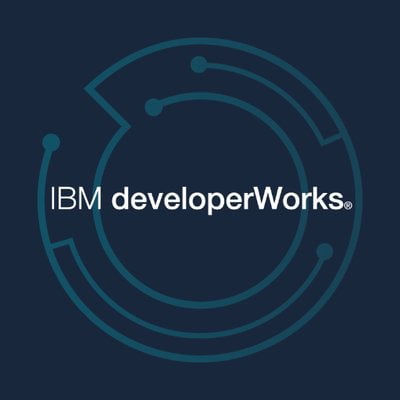Reviving Local Journalism: The Villager Cafe’s Role in Camden, Maine
On a sunny morning in downtown Camden, Maine, the Villager Cafe buzzes with life as the scent of freshly brewed coffee fills the air. The chatter of patrons is occasionally interrupted by the chirps of a cafégoer’s walkie-talkie. Three long-time friends, who have known each other since high school, slide into a seat by the window, ready to discuss politics—a fitting topic for a space that serves as a hub for community engagement.
Nearby, the print copies of the Midcoast Villager, an online and weekly print newspaper dedicated to covering midcoast Maine, are prominently displayed at the café’s cash register. Shelves showcase merchandise featuring the paper’s quirky mascot, creating a warm ambiance. Just above, a small newsroom buzzes with excitement as reporters rush to meet the weekly printing deadline.
The Rise of the Villager Cafe
It is no secret that the traditional media landscape is undergoing a significant transformation. News outlets nationwide are wrestling with declining readership and shrinking revenues—issues that have raised questions about the future of local journalism. In Camden, however, the Villager Cafe has emerged as a beacon of hope. Opened in April 2024, it serves not just as a café but as a newsstand and events space for the Midcoast Villager. The café aims to be a "third space for community engagement," as described by Deputy Editor Alex Seitz-Wald.
The Crisis in Local News
With local newspapers shutting down at a staggering rate—130 closed last year, according to the Northwestern University Local News Initiative—the need for community-oriented news sources is more pressing than ever. In fact, as of last October, 206 counties across the United States had no local news outlet at all.
Local media outlets face these challenges head-on, and innovative approaches like the Villager Cafe are proving essential for re-engaging communities. Other organizations have taken similar steps; for example, WBUR, an NPR affiliate in Boston, has transformed into a performance and events space, while others like the Texas Tribune host festivals to draw in audiences.
The Importance of Local Journalism
As Meg Heckman, an associate professor of journalism at Northeastern University, points out, the decline of local newspapers severely damages civic life and public discourse. "It’s much harder to know what’s going on in town hall or how federal policies affect rural farmers and fisheries," she states. This increased distance can lead to disengagement from civic affairs and diminish community ties.
Reade Brower: Maine’s Media Mogul
Reade Brower is a significant figure in this local media landscape. Regarded as Maine’s "media mogul," he has played a crucial role in shaping journalism in the region. In 2019, Brower owned six of Maine’s seven daily newspapers, along with 20-plus weekly publications and three printing facilities. However, in 2023, he transferred most of his holdings to the National Trust for Local News, a nonprofit organization.
Four of the newspapers he retained—the Camden Herald, Republican Journal, The Courier-Gazette, and The Free Press—were consolidated into the Midcoast Villager. The first issue was published in late 2024, marking a new chapter for local news in Camden.
Community Support and Engagement
Reflecting on the community’s reaction to newspaper consolidations, Kathleen Fleury Capetta, co-founder of the Midcoast Villager, noted, "Now, it’s so common to understand that media is not working as a business.” Local residents were supportive, recognizing the need for a unified voice in local journalism.
Declining Revenue and Changing Habits
The financial pressures on local newspapers cannot be overstated. Traditional revenue sources have dwindled, especially with the rise of online platforms like Google and Facebook. In 2006, U.S. newspapers generated approximately $49 billion in advertising revenue. By 2022, that number had plummeted to less than $10 billion. Consequently, while 85% of U.S. adults believe local news outlets are key to their communities, only 15% have financially supported these sources recently.
A Community Hub: The Villager Cafe
The Villager Cafe has quickly become a go-to spot for residents looking for good food and a sense of community. Aaron Britt, co-publisher of the Midcoast Villager, explained that people have been eager to check out the new venue: “‘Is it open? Can I come in? What’s going on? I want to see it,’” he recounted. Feedback has been overwhelmingly positive; patrons enjoy both the food and the atmosphere, remarking on the sense of familiarity and connection they feel in the space.
A Vision Beyond Coffee
Brower had long envisioned integrating cafés into communities where he owned newspapers. Building on a concept he previously explored for a news café in the Cayman Islands—a project that faltered due to the pandemic—he and Capetta brought the Villager Cafe to life. “I believe very strongly in the statement that you either grow or die,” Brower emphasizes, underscoring the urgency of revitalizing local journalism.
Building Trust in Local Media
One significant hurdle for local journalism is trust. A 2024 Gallup poll reported that 36% of U.S. adults expressed no trust in the media, while another study by Pew indicated that a majority of locals—78% of Democrats and 66% of Republicans—view local news accurately. Brower sees a path forward through community engagement at the cafe.
To foster transparency and connection, the Midcoast Villager hosts "Fresh Brewed News" every Friday. During these sessions, community members can discuss local issues and gain insights into the week’s stories. Additionally, a Silent Reading Club invites patrons to spend an hour engrossed in books while enjoying communal silence punctuated by moments of conversation.
Future Aspirations
Looking forward, Seitz-Wald aspires to host debates on local issues, further establishing the café as a space for respectful dialogue. Brower emphasizes the café’s mission: "How do we connect our community and create a respectful place of dialogue? We believe we’re achieving that."
While the café model doesn’t promise to resolve all of journalism’s trust issues, it represents a meaningful way to forge closer ties between media and the community. "I don’t think brewing coffee every morning is necessarily going to solve all the problems," cautions Professor Heckman. However, she emphasizes the importance of physical locations for fostering relationships and engagement between journalists and the public.
Call to Action: Explore the Best Kodi Boxes
As we reflect on community engagement in local journalism, consider enhancing your digital experience at home! If you enjoy streaming and want to take advantage of the best streaming options available, explore the best Kodi boxes. For an optimized Kodi experience, check out https://kodi.expert/best-kodi-boxes to discover top devices that can take your home entertainment to the next level.
Conclusion
The Villager Cafe is more than just a café. It symbolizes a revived commitment to local journalism in Camden, Maine, while also reflecting the pressing need for community engagement in an increasingly fragmented media landscape. The café serves as a crucial meeting point for local constituents and journalists, fostering open dialogue and restoring trust in media.
While challenges remain, including financial hurdles and trust issues, initiatives like the Villager Cafe showcase innovative paths forward. The importance of strong local journalism cannot be overstated—it enriches civil discourse, informs citizens about local issues, and enhances community ties. As you seek to engage with your community, consider investing in local news and discovering the best Kodi boxes for an enriched viewing experience. Both realms embody the spirit of connection—whether through shared news or shared entertainment, they nurture the bonds that hold communities together.




